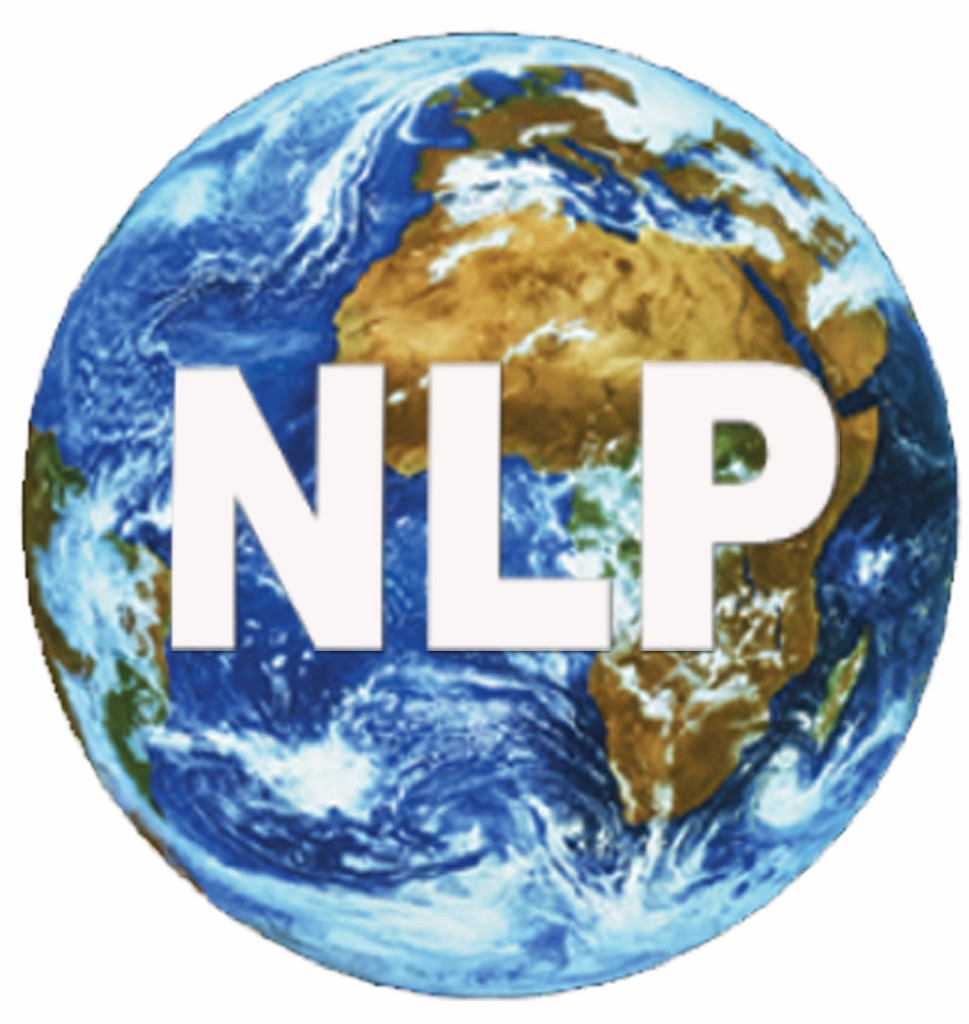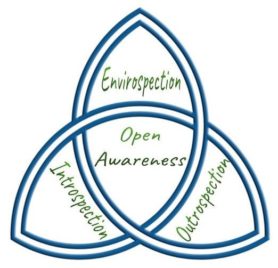NLP is the operator’s manual for using your mind effectively
Neuro-Linguistic Programming (NLP) provides ways to understand how people do what they do, and how to upgrade what you do, when you’d like to do better.

NLP is a practical model of human behaviour that has, at its core, specific interest in the patterns of behaviour that distinguish excellent performance from average performance. The three letters in the acronym NLP refer to:
- Neuro relates to our nervous system where our behaviour, our thoughts, our feelings and the state of our bodies reside.
- Linguistic implies that it is mainly language that enables us to both internally store our inner experiences as well as share them with the outer world. It is through language that we create our map of reality.
- Programming is the ability to change behaviour patterns and feelings in such a way that they become useful and constructive to our personality as a whole, thus fostering our growth and health.
NLP is widely known as “the fastest and most powerful vehicle for personal change in existence!” -Psychology Today-
NLP was originated by Dr. John Grinder (whose background was in linguistics) and Dr. Richard Bandler (whose background was in mathematics and gestalt therapy) for the purpose of making explicit models of human excellence. I.E what skills and techniques would help a person overcome a problem.
They identified the verbal and behavioral patterns of therapists Fritz Perls (the creator of gestalt therapy) and Virginia Satir (internationally renowned family therapist) and later modelled Milton Erickson, founder of the American Society of Clinical Hypnosis and one of the most widely acknowledged and clinically successful psychiatrists of our time. They studied Erickson’s ways to use metaphor and stories to induce trance as well as to help his clients overcome their challenges.
Grinder and Bandler formalized their modeling techniques and their own individual contributions under the name “Neuro-Linguistic Programming” to symbolize the relationship between the brain, language and the body.
Through the years, NLP has developed some very powerful techniques and processes that are used widely today in various fields to enhance performance, overcome negative emotions and limiting beliefs, facilitate healing and improve relationships.
NLP is solution-oriented. Every problem carries within it a solution. The solution is often a question of perspective and the flexibility to integrate our own new perspectives. Solution-oriented thinking and acting that is supported by NLP provides more playroom for the decision making process.
NLP is resource-oriented. NLP presupposes that everyone already carries within them all the resources they need for mastering their life. The treasures must first be uncovered. Those in touch with their strength, their talents and their abilities possess the energy to easily achieve their goals and ambitions.
NLP teaches you how you do what you do: How you take in the information from the world around you, what you do with that information inside your head and how what you do results in states such as happiness or depression; a body that is healthy or dis-eased, as well as how all your feelings and behaviours are motivated by your personal internal representations (or maps of reality) and how these can be easily updated with NLP.
Read: The core premises of NLP (NLP Presuppositions)
How does NLP work?
As human beings we live in a five sensory world. We take in all information through our five senses. Now if we absorbed everything that comes to us at the rate of about 4 million bits of information per second, we’d ‘fry our circuits’. So to deal with it – to make the pieces of information into small enough chunks to deal with – we filter the information.
Some of the filters are our perceptions of time and space, energy and matter, the language we use and our understanding of words and gestures, our memories, the unique way we go about making decisions, the patterns we look for when selecting information, our values and beliefs, plus our overall attitude. We delete, distort and generalize information according to our unique filters. Once we have passed incoming information through all these filters, we take what has gotten through and we make an internal representation of it. This internal representation is in the form of a sensory perception: a picture with sounds, feelings, tastes and smells. The next thing that happens (instantaneously) is that our internal representation triggers a corresponding state and behaviour.
What is a state?
Being happy is a state; so is depression. Being “fired up” is a state, so is tiredness or lethargy. Many people are familiar with the expression “It’s a state of mind” but what’s really interesting about the state is that it leads us to choose corresponding behaviour.
The “fight or flight” syndrome is the best known example of the following: There’s the caveman walking along a path and out jumps a saber-toothed tiger! The caveman’s body immediately reacts: Survival instinct kicks-in, and there’s a surge of adrenaline into the system, the breathing rate goes up and more oxygen enters the lungs. His heart pumps blood stronger and faster through the system and simultaneously the blood drains away from the extremities, not only so that it can be used more effectively internally but so that if the caveman decides to fight, he won’t bleed so much should he be bitten. Now his body is ready to maintain his survival, ie – running or fighting.
These days many people live much of their lives in the “fight or flight” mode, ie – stress. This response of the nervous system is only meant to be activated in times of emergency. Frequent and long term surges of adrenalin into your blood stream cause major health problems and premature aging. NLP teaches simple methods of controlling your state and transforming the “triggers” which cause dis-ease.
In a nutshell then, NLP enables people to be less affected (unconsciously reacting) by external circumstance, through becoming more aware of our internal processes, and thereby being more at cause (consciously creating) in the various areas of life.
What will NLP do for me?
NLP is widely defined as a reliable approach to ‘running your own mind’ and enhancing your behavioural flexibility for greater fulfillment in life.
How is NLP used?
Although the initial models developed in NLP were based on brief therapy, the applications of these models were soon found to have application across a very wide spectrum of human endeavour.
Some of these areas are:
Business:
Coaching, Training, Negotiation, Sales, and Leadership Development. NLP provides the “how to do it” for all the “what to dos” of the other leadership models.
Education:
Classroom management; incorporating the concept of different learning styles: Visual, Auditory and Kinaesthetic, including values and other deep structural “filters” that influence each individual’s interest and capacity to learn; accelerated learning technologies; photo reading; spelling and other strategies to enhance learning.
Therapy:
Highly effective Brief Therapy models to treat: phobia, trauma, post-traumatic stress, habit & addiction cessation, allergic response, relationship problems, grief, depression, healing of negative emotions, ADD, ADHD and more.
Coaching:
Both NLP & HNLP methodologies offer a positive, proactive goal-oriented approach to the change process, making them appropriate for coaching in all contexts. Both approaches offer the coaching profession a tremendous scope to assist clients in more rapidly achieving their desired outcomes and sustaining those results. The HNLP Coaching Model is particularly useful at “coaching the unconscious mind”.
Sports Performance:
NLP is renowned for its capacity to enhance performance in Golf, Tennis and Diving. NLP is also used extensively in enhancing sports performance for athletes from the amateur to the world class level. Both individuals and teams can benefit greatly by including NLP principles in their training.
Who uses it?
People from all walks of life use NLP personally and professionally.
For example:
Businesses can use NLP to foster world-class sales and customer service results – and to implement organizational change effectively.
Educators can study the verbal and nonverbal language of every child to identify how each one learns best. As classrooms become increasingly diverse, NLP skills are becoming more essential.
Counsellors, Therapists & Coaches can help clients become more functional in a shorter time frame. NLP methodologies are essential for helping professionals who want rapid and lasting results with their clients.
Medical & Dental Professionals can mitigate patients’ fears and anxieties about procedures. This translates to higher client satisfaction.
On the personal side, NLP will enable you to:
Enjoy greater control and freedom over your state of mind, responses, and interactions with others. You’ll find it easier to clarify your central purpose in life and identify barriers that may be holding you back. You’ll know how to change the unwanted habits, behaviours and limiting beliefs that are standing in your way. Understand your partner’s and children’s needs and unique maps of reality more fully. Enhance rapport and improve communication with others. Recognize how people use language to influence you and how you can be more influential ethically. You’ll find it easier to achieve your personal and professional goals, because you’ll gain greater access to your internal resources.
Read: The core premises of NLP (NLP Presuppositions)
Discover the book: NLP For Wizardry – The User Manual For Your Mind
Read article: Why so many NLP ‘Experts’ DON’T walk their talk!
“NLP helps me to manage audiences and motivate them. It’s just amazing!” -Oprah-
“NLP is one of the biggest breakthroughs in the technology of achievement and human excellence” -Time magazine-
“I built my sales career from zero to become the world’s best motivator by using NLP.” -Anthony Robbins-
“NLP could be the most important synthesis of knowledge about human communication to emerge since the explosion of Humanistic Psychology in the sixties” -Science Digest-
HNLP:
A student asked: “Where is the Heart in NLP”. The teacher replied: “The Heart is in You”. And so HNLP was born!
HNLP (Humanistic Neuro-Linguistic Psychology) creatively integrates quantum physics, modern neuro science, hypnosis, accelerated learning, spirituality, and common sense with classic NLP. In a nut shell HNLP is the study of how our Mind creates our reality through language and behaviour.
Both NLP & HNLP methodologies offer a positive, proactive, goal-oriented and sustainable approach to enhancing performance. HNLP, however, includes a more Humanistic, Holistic and “organic” methodology than classic NLP, which is more technique driven.
HNLP is the study of how Mind creates reality through language and behaviour. One of the basic premises from which we work is that everyone and everything is interconnected.
It is presupposed in HNLP that as people we are capable of far more than we think we are, because we are more than we think we are. This idea is based on the knowledge that our current perceptions are limited to how our neurology filters information. It’s our internal representations and states that determine our behaviour much more than the world outside of us. Read more…
Listen to an introduction to HNLP – podcast
Discover the book: NLP For Wizardry – The User Manual For Your Mind

